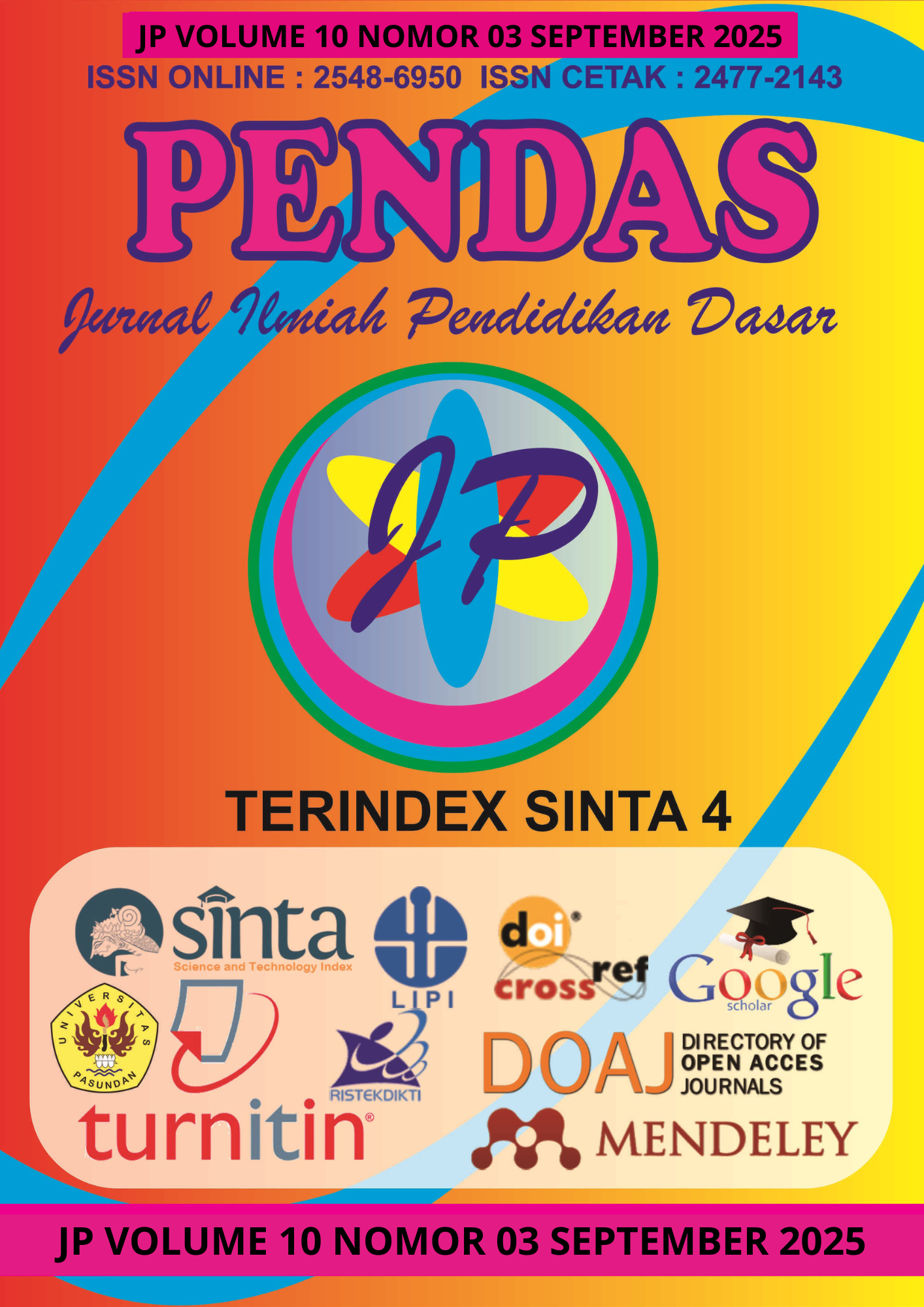ANALISIS IMPLEMENTASI HIRI DAN OTTAPPA TERHADAP PENCEGAHAN PERILAKU BULLYING PADA SISWA SMB AMAN SEJAHTERA SEMPARUK
DOI:
https://doi.org/10.23969/jp.v10i03.33810Keywords:
Hiri, Ottappa, Bullying PreventionAbstract
This study is motivated by the increasing prevalence of bullying, both directly and through social media, which occurs not only in formal schools but also in Buddhist Sunday Schools (Sekolah Minggu Buddha/SMB). Such phenomena cause intimidation, discrimination, and trauma that disrupt the learning process and contradict Buddhist values emphasizing loving-kindness and self-restraint. The purpose of this study is to analyze the implementation of the values of Hiri (a sense of shame in committing wrongdoing) and Ottappa (fear of the consequences of misconduct) as efforts to prevent bullying at SMB Aman Sejahtera Semparuk. The research employed a descriptive qualitative method with participants consisting of three teachers, three parents, and seven students. Data were collected through interviews with a total of thirteen respondents. The findings reveal three key points. First, teachers consistently instill the concepts of Hiri and Ottappa in the learning process as a preventive measure against bullying. Second, these values are implemented through advice, habituation, and character strengthening in classroom activities. Third, their application has proven effective in transforming students’ behavior positively and reducing bullying incidents within SMB. Therefore, Hiri and Ottappa serve as ethical-religious approaches that are relevant for character formation and for preventing bullying, both in Buddhist Sunday Schools and in formal educational settings.
Downloads
References
Aisyah, S., Ode, W., & Wulandari, I. (2023). Faktor-faktor penyebab verbal bullying oleh siswa. UM BUTON: Jurnal Wawasan Sarjana, 2(3), 105.
Azzahra, A. (2023). Dampak bullying terhadap perkembangan sikap sosial dan emosional siswa sekolah dasar. Guidance: Jurnal Bimbingan dan Konseling, 20(12), 101–112. https://uia.e-journal.id/guidance
Creswell, J. W., & Creswell, J. D. (2023). Research design: Qualitative, quantitative, and mixed methods approaches. Sage Publications.
Hidayati, D. (2014). Strategi guru pembimbing dalam mencegah terjadinya tindakan bullying antar siswa di Sekolah Menengah Pertama Negeri 20 Pekanbaru. UIN Suska Riau Repository. http://repository.uin-suska.ac.id/4931
Kamaruddin, N., et al. (2023). Cyberbullying interventions in schools: A systematic review. Journal of Educational Technology.
Karyanti, & Aminudin. (2019). Cyberbullying & body shaming. K-Media.
Lusiana, S. N. E. L., & Arifin, S. (2022). Dampak bullying terhadap kepribadian dan pendidikan seorang anak. Kariman: Jurnal Pendidikan Keislaman, 10(2), 337–350. https://doi.org/10.52185/kariman.v10i2.252
Ruliyatin, E., & Ridhowati, D. (2021). Dampak cyber bullying pada pribadi siswa dan penanganannya di era pandemi Covid-19. Jurnal Bikotetik (Bimbingan dan Konseling: Teori dan Praktik), 5(1), 1–5. https://doi.org/10.26740/bikotetik.v5n1.p1-5
Sugiyono. (2019). Metode penelitian kualitatif: Untuk penelitian yang bersifat eksploratif, enterpretif, interaktif, dan konstruktif. Alfabeta.
Yusuf, M. Y., Reza, R. D., Setyorini, S., & Karang, L. (2023). Penegakan hukum penyalahgunaan media sosial untuk bullying dalam perspektif Undang-Undang Informasi Transaksi Elektronik dan hukum pidana Islam. Wasatiyah: Jurnal Hukum, 4(2), 19–35. https://doi.org/10.70338/wasatiyah.v4i2.141
Downloads
Published
Issue
Section
License
Copyright (c) 2025 Pendas : Jurnal Ilmiah Pendidikan Dasar

This work is licensed under a Creative Commons Attribution 4.0 International License.














































